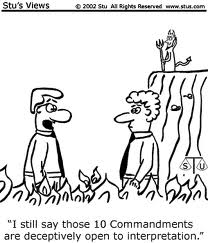Rick Santorum, birth control, and “playing God”
By Brian Earp See Brian’s most recent previous post by clicking here. See all of Brian’s previous posts by clicking here. Follow Brian on Twitter by clicking here. Rick Santorum, birth control, and “playing God” Rick Santorum th…
Read MoreHandling Editor Defends Decision: After – Birth Abortion
By: Prof. Kenneth Boyd, Revd Professor Emeritus of Medical Ethics, Associate Editor, JME Coming up to me at a meeting the other day, an ethics colleague waved a paper at me. “Have you seen this ?” she asked, “It’s unbelievable!” The paper…
Read More“Liberals Are Disgusting”: In Defence of the Publication of “After-Birth Abortion”
Editorial note: John Harris has responded to this post to clarify his position on infanticide. You can find the relevant post here. The Journal of Medical Ethics prepublished electronically an article by Alberto Giubilini and Francesca Mine…
Read MoreIs there a moral argument for including more common behavioural phenomena in the DSMV?
“Shyness, bereavement and eccentric behaviour could be classed as a mental illness under new guidelines, leaving millions of people at risk of being diagnosed as having a psychiatric disorder, experts fear,” reads the title of a news articl…
Read MoreSurrendering to big brother might be the least bad option
We’re probably approaching a point where blue-collar crime could be eradicated, one way or the other. But the way does matter: we could eradicate crime through ubiquitous surveillance, or through drug treatments/targeted lobotomies to…
Read MoreThe P-Factor
Electoral reform is an often-discussed topic. But the issues often concern minor modifications to the status quo. Here I suggest an entirely new approach to electing leaders of a country. It would have numerous benefits over the current s…
Read MoreThere’s nothing that lawyers shouldn’t do
By Charles Foster A patient in his 40s with locked-in syndrome, referred to in court only as ‘Martin’, wants to die. His wife cannot bring herself to help him. He would therefore need help from others. He is concerned that would-be helpers …
Read MoreVegetarians Have Moral Obligation to Eat “Frankenmeat”
The Daily Telegraph reports: Prof Mark Post, of Maastricht University in the Netherlands, yesterday announced the world’s first test tube hamburger would be served up in October. Heston Blumenthal, the experimental chef, will cook the…
Read MoreLove and other drugs, or why parents should chemically enhance their marriages
By Brian Earp See Brian’s most recent previous post by clicking here. See all of Brian’s previous posts by clicking here. Follow Brian on Twitter by clicking here. Love and other drugs, or why parents should chemically enhance t…
Read MoreEVENT: Neuroethics Seminar: Two Lectures in Neuroethics
5.30 p.m. – 6.40 p.m. Monday 27 February Seminar Room 1, Oxford Martin School, 34 Broad St (http://www.oxfordmartin.ox.ac.uk/contact/) The session will comprise two brief lectures with q and a: Prof. Neil Levy Resource depletion: the durat…
Read More


